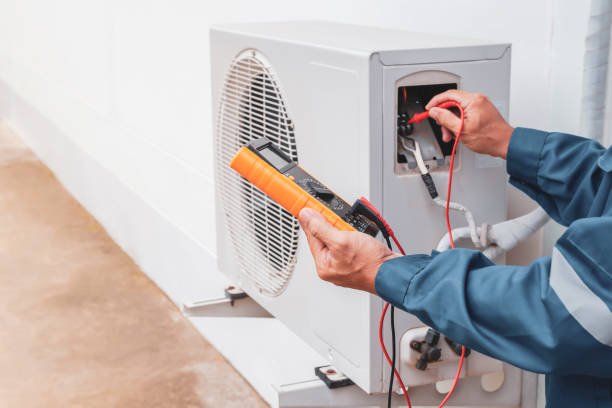Navigating New HVAC Purchases: How Much Should You Expect to Pay?
Introduction
When it comes to ensuring comfort in your home, few systems are as crucial as your HVAC (Heating, Ventilation, and Air Conditioning) system. Whether you’re looking for a new installation or considering an upgrade, understanding the financial aspects of this investment is vital. In the world of HVAC, prices can range from reasonable to astronomical, leaving many homeowners wondering what they should expect to pay. But fret not! This guide is designed to help you navigate new HVAC purchases with clarity and confidence.
In this comprehensive article, we will explore various factors influencing HVAC costs and provide insights on how to find reliable HVAC companies near me. With detailed headings and sub-headings, we’ll break down everything from initial consultation fees to long-term maintenance costs. Let’s dive in!
Navigating New HVAC Purchases: How Much Should You Expect to Pay?
The cost of a new HVAC system can vary significantly depending on several factors including the type of system you choose, the size of your home, and any additional features you might want. Generally, homeowners can expect to spend anywhere from $3,000 to $12,000 for a new system. Here’s a closer look at what influences these costs:
Understanding Different Types of HVAC Systems
Central Air Conditioning Systems
Central air conditioning systems are among the most popular choices for residential cooling. They work by circulating cool air through ducts installed in your home.
- Average Cost: $3,500 - $7,500
- Pros: Efficient cooling for larger homes
- Cons: Higher installation costs due to ductwork
Ductless Mini-Split Systems
Ductless systems offer flexibility and efficiency without needing extensive ductwork. They are ideal for homes without existing ducts.
- Average Cost: $2,000 - $5,000 per unit
- Pros: Easy installation; energy-efficient
- Cons: Can be less effective in larger spaces if multiple units are needed
Heat Pumps
Heat pumps serve as both heating and cooling systems. They transfer heat rather than generate it.
- Average Cost: $3,000 - $8,000
- Pros: Energy-efficient; lower operational costs
- Cons: Performance may drop in extremely low temperatures
Factors Influencing HVAC Costs
Home Size and Layout
Larger homes typically require more powerful systems or additional units. The layout can also HVAC installation services Chaparral affect installation complexity.
System Efficiency Ratings (SEER & AFUE)
Higher efficiency ratings often mean higher upfront costs but can save money over time through reduced energy bills.
Installation Costs
Hiring professionals is essential when installing an HVAC system. Installation fees usually range from 20% to 50% of the total project cost.
What’s Included in Installation Fees?
- Labor charges
- Equipment setup
- Ductwork modifications (if necessary)
Additional Features That Affect Cost
Smart Thermostats
Smart technology can increase upfront costs but often results in energy savings over time.
Air Quality Enhancements
Improving indoor air quality with filters and purifiers can add additional costs but is worth considering for health benefits.
Finding Reliable HVAC Companies Near Me
Now that we've covered the potential costs associated with new HVAC installations let's discuss how to find quality contractors in your area.

Researching Local Contractors
When searching for reliable HVAC companies near me:
Getting Multiple Quotes
Don’t settle on the first quote you receive! Gathering multiple estimates allows you to compare services and pricing effectively:
Evaluating Customer Service
A good contractor will provide excellent customer service throughout the process:
FAQs About New HVAC Purchases
1. What’s the average lifespan of an HVAC system?
Generally speaking, most systems last between 15–25 years depending on maintenance and usage patterns.
2. Are there financing options available for new installations?
Yes! Many contractors offer financing plans or partner with third-party lenders making it easier for homeowners to manage payments.
3. How often should I maintain my HVAC system?
Regular maintenance is recommended twice a year—once before summer cooling season and once before winter heating season—to ensure optimal performance.
4. Can I install an HVAC system myself?
While DIY projects can be tempting, it's highly recommended that you hire professionals due to safety concerns and potential code violations.
5. What should I do if my system breaks down?
Contact your local technician immediately! Regular maintenance can prevent breakdowns but having a reliable contact number on hand is crucial during emergencies.
6. Is energy efficiency worth the extra cost?
Absolutely! While high-efficiency models may have higher initial prices, they typically result in significant savings on monthly utility bills over time.

Conclusion
Navigating new HVAC purchases doesn’t have to be daunting if you're equipped with the right information! By understanding what influences pricing—from system types and efficiencies to installation practices—you'll be better prepared when making decisions about your home's climate control solutions.
Whether you're searching online for HVAC companies near me or comparing quotes from local contractors, take your time assessing all options available before committing financially—after all, you're investing in comfort! With careful planning and consideration of long-term savings versus upfront costs, you'll ensure that you're making a sound investment into your home's future comfort needs!
In summary—don’t rush into decisions surrounding new HVAC purchases; instead arm yourself with knowledge so that your expectations align with reality when it comes time for those big-dollar installations!
This article has provided an extensive overview aimed at helping you navigate new HVAC purchases efficiently while keeping budget considerations at the forefront of decision-making processes!
